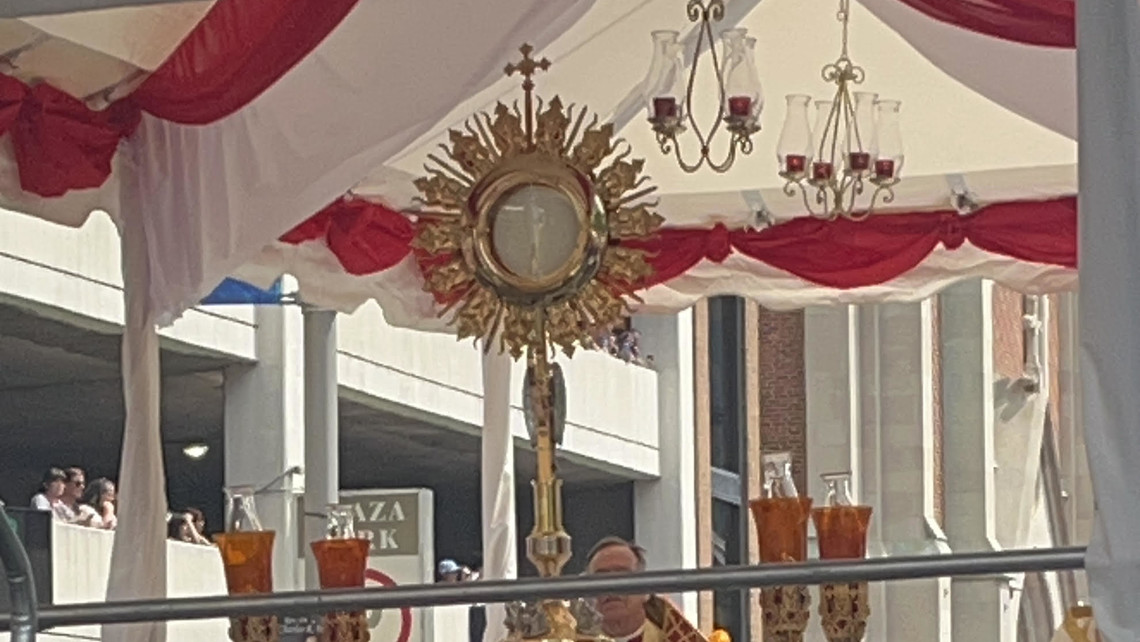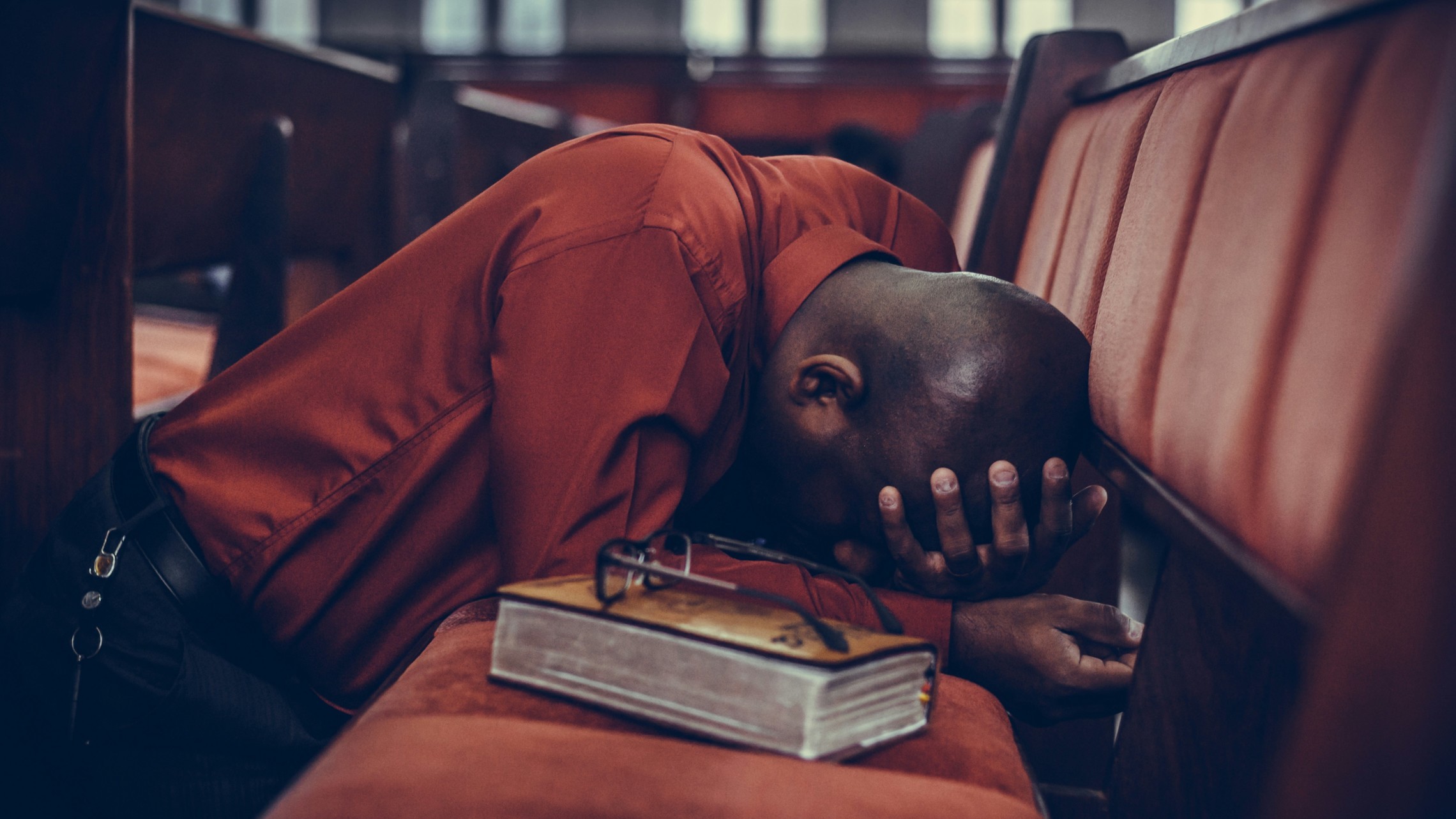
A challenge that many of us face at some time in our lives is the loss of our identity, especially our identity as God’s child. The prevalent question we can ask ourselves is, who am I? What is the purpose of my life? Why do I feel so lost without any purpose? At times these self-probing questions can enter in a sense of despair and hopelessness where an inevitable question may arise, do I possess any self-worth? Ironically, every day we spiritually dive into these self-assessing questions provides us an opportunity to seek the truth that in all sincerity focuses on walking toward a relationship with Jesus Christ. Whether the opportunity to do so involves a prayer, a retreat, a song, or meeting a friend for coffee, every day offers us an opportunity to hope that Jesus is there and is listening to our struggles.
The challenge with these spiritual struggles is when we begin to walk away from God the Father instead of toward him because these spiritual calamities appear to be insurmountable. Perhaps, this was a main focus of the recent National Eucharistic Congress held in Indianapolis to provide the Catholic faithful of the United States a hopeful opportunity to answer many if not all of these self-assessing questions. Though the National Eucharistic Congress exuded great enthusiasm, excitement, and hope, I sensed that many came to renew and heal their relationship with Jesus Christ.
In his work on the Holy Eucharist Fr. Aidan Nichols describes the sixth chapter of John’s Gospel as the first instance where Jesus promised the institution of the Holy Eucharist.[1] The first instance can be referred to as the first opportunity to explain why Jesus came, to help us as St. Peter describes in his epistle to become partakers of his divine nature.[2] The Catechism tells us that the first announcement of the Eucharist divided the disciples, just as the announcement of the Passion had scandalized them.[3] In both instances, we encounter the Apostle's unpreparedness, leading to confusion, anger, and fear. We see this in their response toward the end of Jesus’ Bread of Life discourse where they express the state of their actual belief at that time, “this is a hard saying, who can listen to it?”[4] This particular biblical discourse expresses both the Divine intentions of Jesus and the receptive weakness of the Apostle's ability to assent to His words and actions.
The tension expressed by the Apostle’s hesitancy to embrace Jesus’ words is no different from our hesitancy to either accept or reject the teachings of Jesus Christ. The drama of sin and the inclination associated with sin continuously opens a door to either embrace or reject a virtuous life. The Catechism states that Christ provided the Eucharist in a three-fold manner, to be consumed, be filled with grace, and the pledge of future glory given to us, i.e., salvation.[5] For all its fanfare of speakers, exhibitors, and sponsors the Eucharistic Congress was an opportunity to witness God disclose himself through his Son, encounter His Word, confess Jesus is real, and experience genuine ordinary encounters with Him.
These ordinary encounters are what struck my wife and me the most as pilgrims and disciples of the Congress. Witnessing the various religious orders minister to the people in both physical and spiritual need such as Mary Mother of the Eucharist of the Franciscan Martyrs of St. George. Witnessing the call by members of the Eucharistic Congress team plea for more Priests to hear confession and witnessed several hundred priests answer the call as they marched through the convention center. St. John the Evangelist, the Catholic Church across the street from the convention center was perpetually crowded with adorers to spend time with our Lord in adoration. These opportunities to unite ourselves with our Lord echoed a call to be still, listen, receive, and finally proclaim Jesus Christ as our Lord, Savior, and King.
Be Still and Listen
In his second letter to the Corinthians, St. Paul reminds us that to see and worship Christ we must remove the veil that impedes our relationship with him.[6] When we remove the veil of sin and deceit and reject the calamities of the world, our proclamation of the Gospel reflects Jesus’ words and not our own. Jesus provides us with the opportunity to address our sinful wounds if we choose not to hide behind an event or a spiritual experience. The stillness of our hearts reflects an intimate surrender to the will of God one that requires us to see ourselves as His children that he loves infinitely. Now we can be still and embrace our Lord, this was evident when each evening session of the Eucharistic Congress would conclude with Eucharistic adoration. At one point on Friday evening, there was no musical instrument or human voice that could be heard in the stadium even from a child providing a beautiful sense of stillness as all of us humbly knelt in adoration listening to our Lord in prayer.
Receive Him
As the stillness of the time began to end, and the evening had ended, many exhibited a continual desire and thirst to receive Him. This became evident as streams of pilgrims sought to continue to adore Christ at St. John the Evangelist, many were seeking any Priest they could find to have their confession heard, while others that I witnessed were overwhelmed with an urge to simply speak of Jesus with joy to whoever would listen. This desire continued the next day as the lines for confession were long, and participating in the Mass was the hottest ticket in town with pilgrims expressing an urgent desire to receive our Lord. An invitation was no longer needed; however, now people earnestly desired to examine their conscience and receive Jesus in the Holy Eucharist.[7]
Proclaim Him
Now, separated from sin and eager to receive Him, the pilgrims were prepared to proclaim our Lord through the largest Eucharistic procession in the United States in decades. The eagerness, joy, and love of all the pilgrims present were evident as they began to process through the streets of Indianapolis. As the impressive procession of Religious, Deacons, Priests, and Bishops gave witness to the triumph of Christ on the Cross there was no doubt that everyone present had one clear focus, proclaim Jesus Christ, crucified.
As I witnessed the huge Ram truck pull the canopy where Our Lord was being processed, everyone stood still in silence and bowed to Christ the King with genuine love and adoration. This act of faith was so striking, that a small group of our evangelical brothers who proclaimed that we were friends of the Devil for believing in the Eucharist were visibly stunned to hear us proclaim that Jesus Christ is our personal Lord and Savior. They eventually put down their signs and just stared in utter awe at what they were witnessing. The procession concluded at the War memorial for adoration with the altar aptly situated in front of the memorial fifty feet high from the ground, it was evident that the city of Indianapolis had been consecrated to Christ the King as we closed with benediction.
What should we take from this grand act of faith? An opportunity was provided to listen, receive, and, proclaim Christ through a renewed sense of prayer, reception of him in love, and proclaiming him with joy. The Catechism quoting St. Ignatius Antioch provides us with a fitting continuance of our journey with Christ,
There is no surer pledge or clearer sign of this great hope in the new heavens and new earth in which righteousness dwells than the Eucharist. Every time this mystery is celebrated, the work of redemption is carried on and we break the one bread that provides the medicine of immortality, the antidote for death, and the food that makes us live forever in Jesus Christ.[8]
May we not allow the events of the Eucharistic Congress to fade into spiritual obscurity but instead instill in all of us a renewed spiritual vigor and rigor to joyfully proclaim the Gospel and urgently forge our path to heaven. Viva Cristo Rey!






